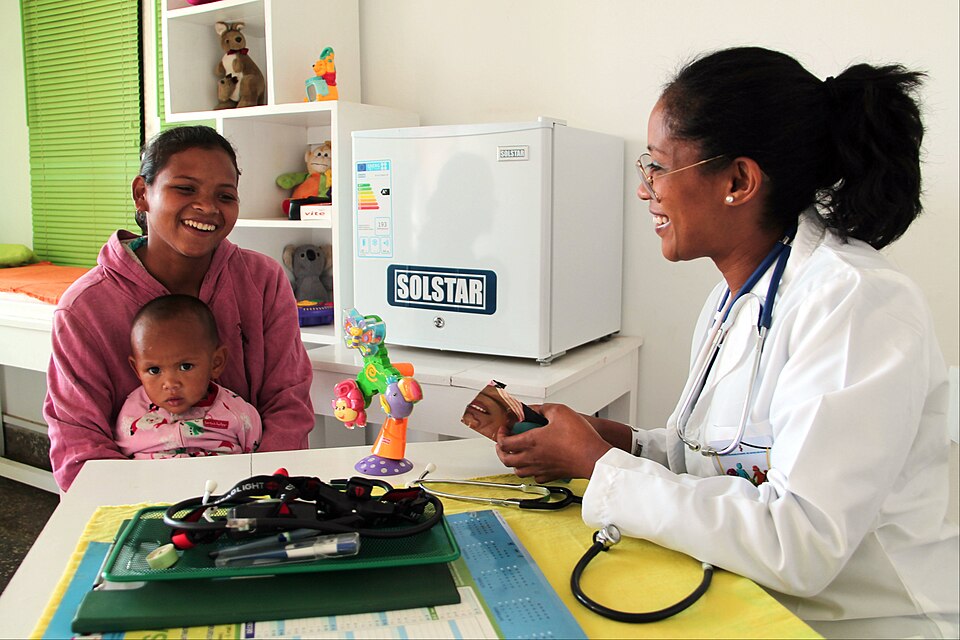Human Overpopulation Is a Key Driver Behind Some of Humanity’s Biggest Challenges
Experts warn that continued world population growth will make things worse.
Introduction
For decades, public health officials like those at the World Health Organization warned that overcrowding exacerbates the risks of pandemics. Hygiene, social distancing, and other key public health outcomes depend on population density, investments in health care, and disaster preparedness. Our modern, urbanized, and overcrowded world sets the stage for disease transmission, and experts warn that continued world population growth will make things worse.
There are measures we can take to mitigate the risk, but the underlying drivers of family size and investments in maternal and children’s health remain fundamental causal factors. Those factors, unlike social distancing orders and the race to develop vaccines, allow for a key efficiency: the chance to be more proactive than reactive and to get ahead of the problem.
There is good news. Population depends on family planning policies, which the Centers for Disease Control and Prevention regards as one area where public policies—which contributed to average family sizes shrinking around the world to half what they were a century ago—have created major success. This leaves us at a crossroads.
Politicians and Outdated Policies
The United Nations has issued world population projections with massive variability. That variability is caused by the U.N.’s adherence to a dangerously outdated family planning model that puts the subjective desires of intending parents over the objective needs of future children and communities. That variability will drastically impact the threat that diseases pose to humanity worldwide. That variability will also create knock-on effects, like the alteration of our ecologies, which in turn will further exacerbate the risks already being faced by humans.
Politicians, under pressure from lobbyists, have often ignored scientific facts and instead have pushed policies that encouraged overcrowding and unsustainable population growth, which has only worsened the problem. Some politicians are obvious in their support of these policies like Venezuela’s President Nicolas Maduro urging women to have six children each. Maduro and other anti-democratic strongmen like Hungary’s Prime Minister Viktor Orban thrive on the idea of a large populace that they could command. Sometimes they’re subtle.
In the United States, the pressure comes from both the left and the right to encourage larger families and the allure of using future generations as an easy way to ensure economic growth. One of U.S. President Donald Trump’s few bipartisan moves was to increase child tax credits as a means of encouraging women to have more kids.
It’s an addictive habit that, like the national deficit, pushes costs down the road and onto future generations in a Ponzi scheme setup, as Nobel laureate Steven Chu pointed out in 2019. It is also analogous to the climate crisis—because, as with environmental destruction, there is some time between when the population increases and when we see its impact. It’s also easy for us to ignore (and for politicians and big businesses to help us ignore) population growth as the overwhelming causal factor contributing to climate change (to the tune of 20 times the impact on our climate). And like the issue of the national debt, we revel in that ignorance, imperiling our children and future generations.
Is there a way out? There is, and it goes well beyond simplistically reducing population growth and involves eliminating the vast inequality that defines our world today, and the inequality that the pandemic is making so painfully obvious.
Thinking Beyond Population
A shift is needed in how we frame the way we think about population. Population is the effect of the dynamic action of family planning, or the lack of family planning, or the act of having kids. Population also implies something quantitative—numbers of people, and measures of the economy. But shouldn’t we think about people more in qualitative terms, or in the quality of their lives, rather than seeing them as numbers? And shouldn’t we care more about the normative question of who we want to share the world with?
A quantitative approach to population by policymakers who support larger families to encourage economic growth is further flawed; it would need to take into account not just the resources produced by citizens, but also resources consumed by each person—a much higher expenditure in wealthy countries than anywhere else of resources, environmental impact, and public health risk during a pandemic.
Instead of thinking of population quantitatively, we might think about family planning policies and having kids as the opportunity to constitute communities of free and equal, or self-determining, people, the sort of people envisioned by the International Bill of Human Rights. This approach orients around the needs of future children and is specifically defined by objective and concrete standards like the Children’s Rights Convention. It focuses on prioritizing resource distribution and public expenditures on ensuring each child’s particular conditions, at birth, will give that child a fair start in life. Human rights begin with the rights and obligations that are part of having kids.

Instead of thinking about reducing population growth as a causal factor in the risk of pandemics, we could frame our family planning policies in terms of the non-partisan need to universally invest more in future children. We could do so—most efficiently—by ensuring each child a guaranteed minimum level of well-being at birth and begin to eliminate vast child inequality, rather than pushing more kids into the world as a means of exploiting their usefulness as consumers, cheap labor and compliant taxpayers. This would mean seeing future children more so as citizens who deserve equal opportunities in life and an effective voice in their systems of governance. And as such, this would mean rallying around a dynamic and qualitative vision of our collective future as something more akin to sustainable communities that orient around democratic town halls, rather than as crowded and constantly growing marketplaces and shopping malls.
By doing this, we would be maximizing public health by ensuring investments at the most crucial phase in our lives—our early childhood development.
Seeing the Fundamental Problem Also Reveals the Fundamental Solution
Shifting from policies that orient around promoting unsustainable population growth to ones that constitute democratic communities involves a few specific and concrete steps:
- Changing our thinking about family planning culture, ethics, discourse and policies from orienting around what parents want, to instead orienting around what future children need.
- Institutionalizing that change at the highest level of policymaking, in our interpretation of our human rights regimes. This could start with a simple statement by the United Nations secretary-general embracing the idea of child-centric family planning as the genesis and core of the International Bill of Human Rights. This could also include the secretary-general recognizing the correlative duty to parents’ right to have children responsibly—the duty to protect the universal human right to nature.
- Funding the implementation of “fair start” family planning by gearing the progressive distribution of resources around financially incentivizing all parents to a) be ready before they have children, b) to work together to give each child born a fair start in life, and c) to embrace smaller and more sustainable families that make all of this possible. In short, the rich would pay to level the playing field for the future children of the poor.
- Catalyzing this process with massive investments in what family planning experts see as a nascent contraceptive revolution. Ensuring the approval and mass marketing of the male pill is an example.
There are many more moves we could make to ensure the transition to better family planning policies that will proactively minimize the risks of pandemics in the future. And while there are many policy matters that feel more pressing, they should not mean ignoring the fundamental causal factor in so many ecological and social crises: The way we replicate our communities, and whether we are doing so in healthy and inclusive, or risky and exploitative, ways.



